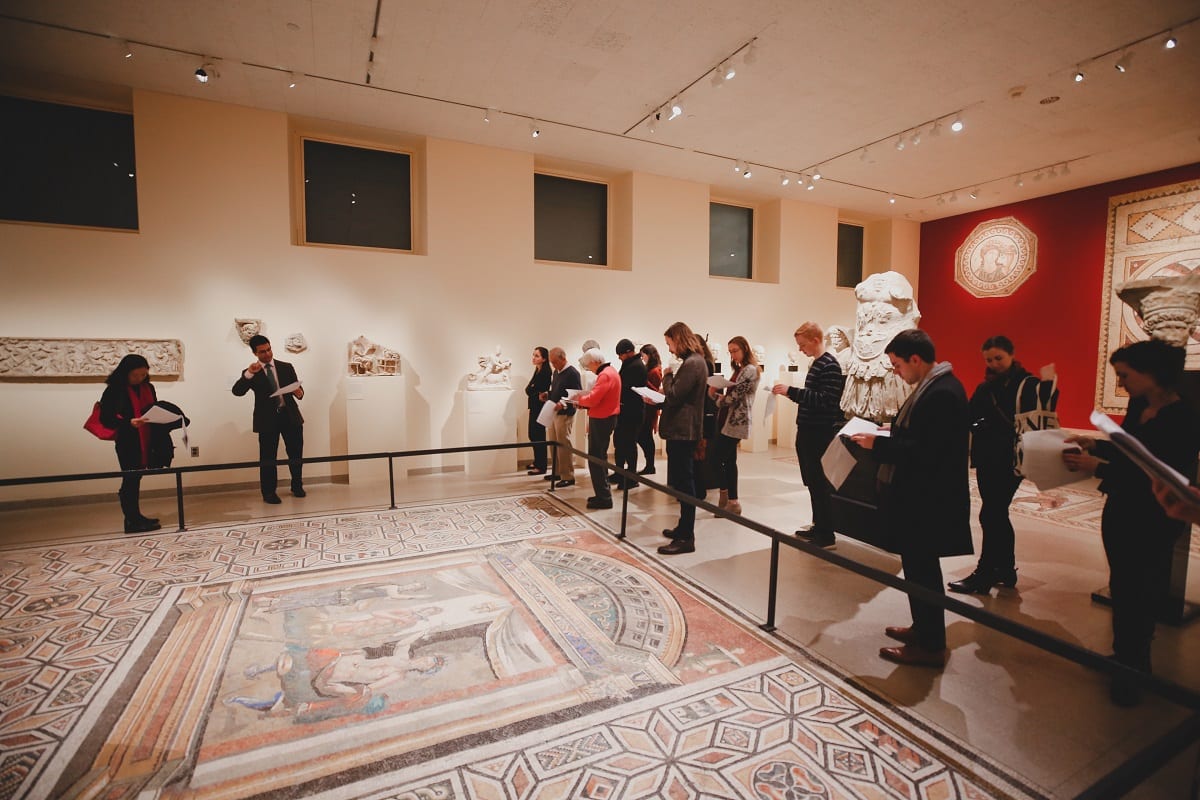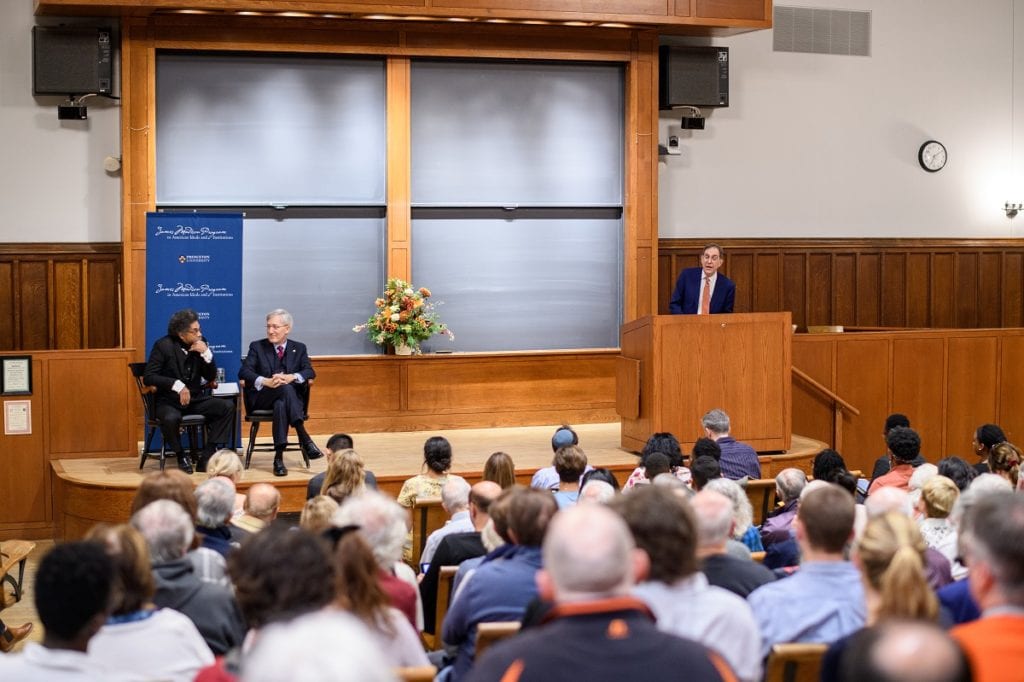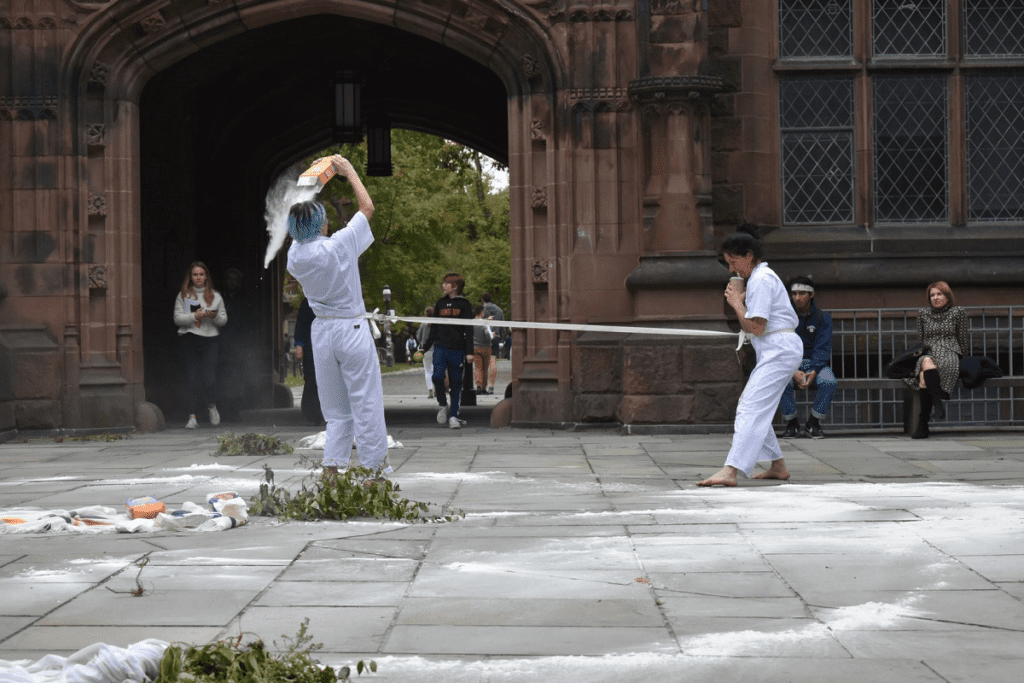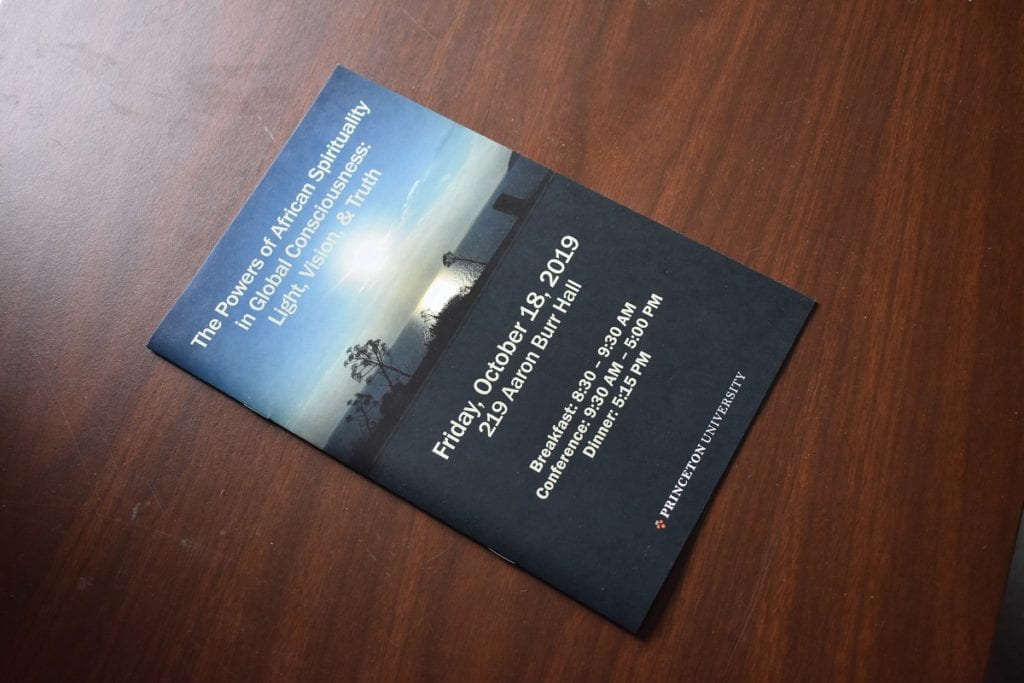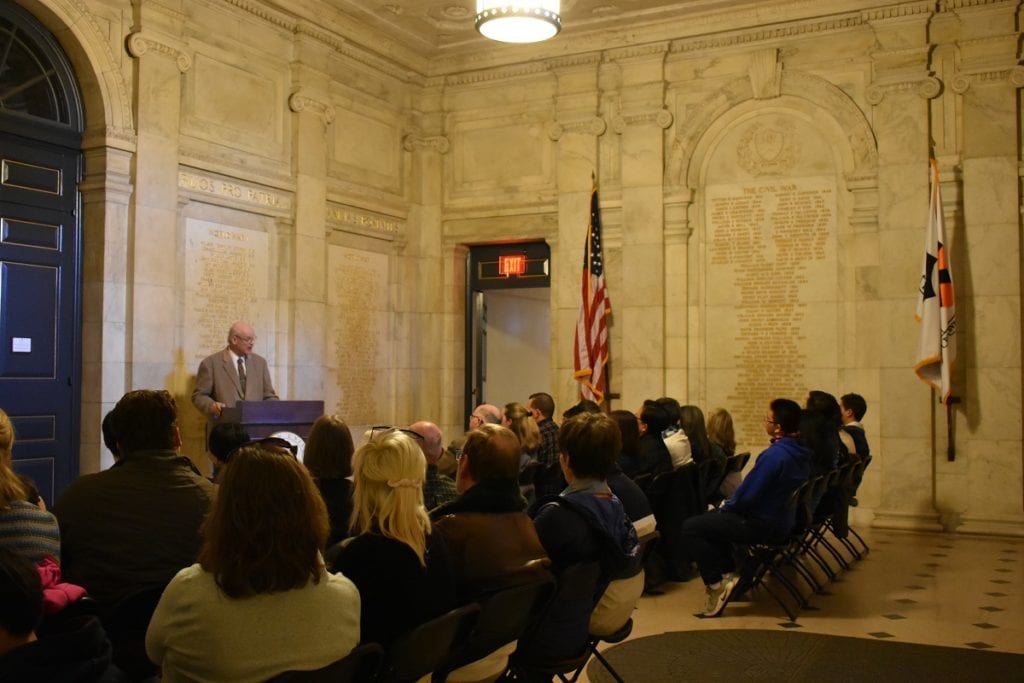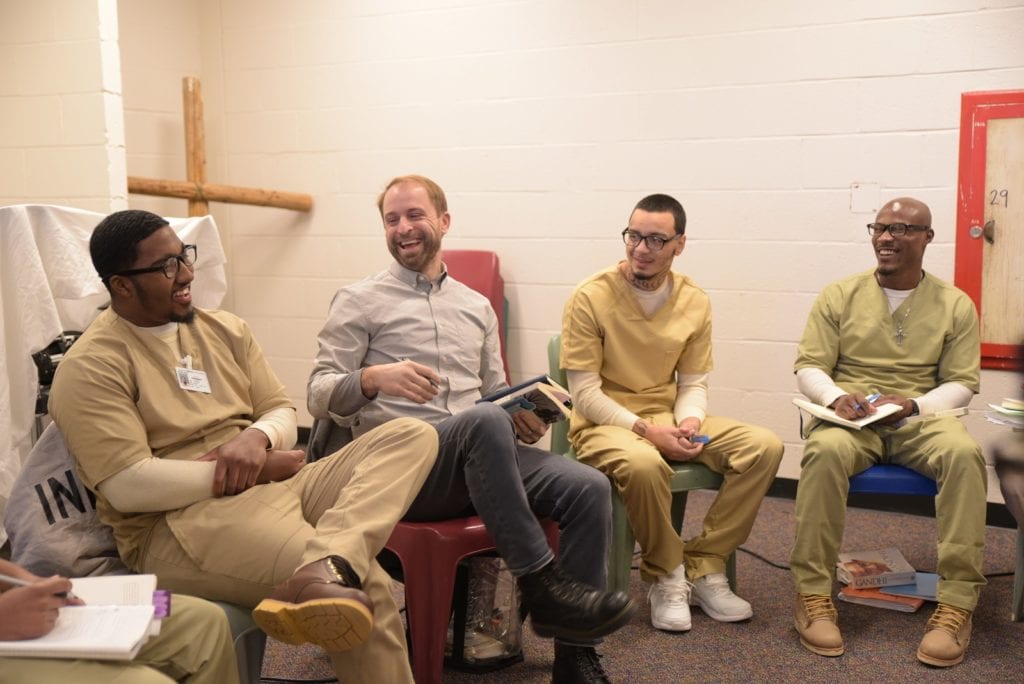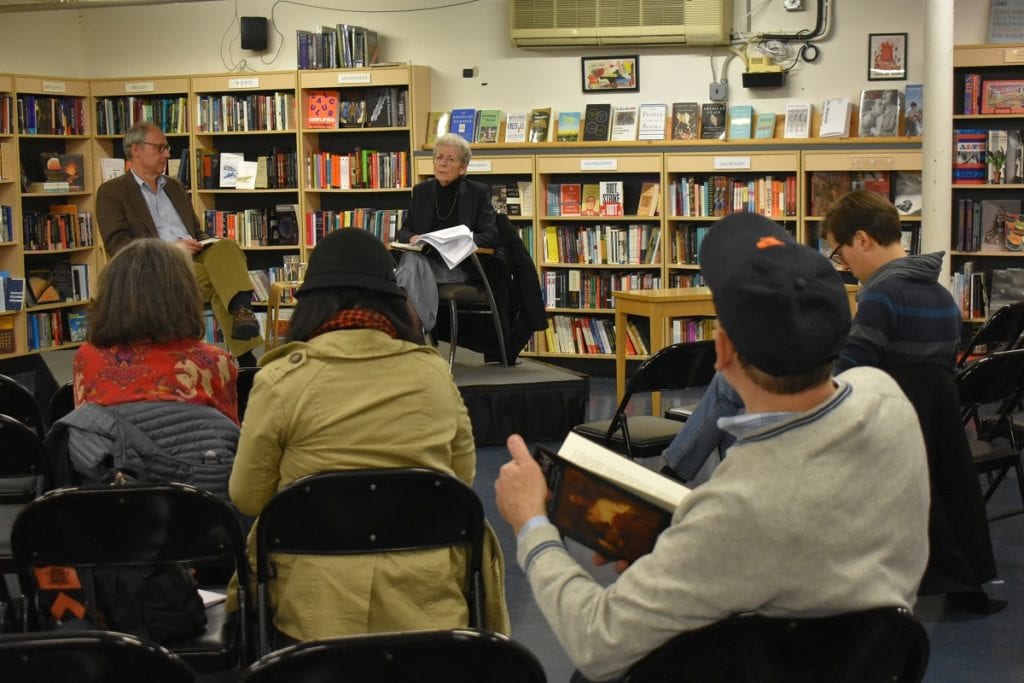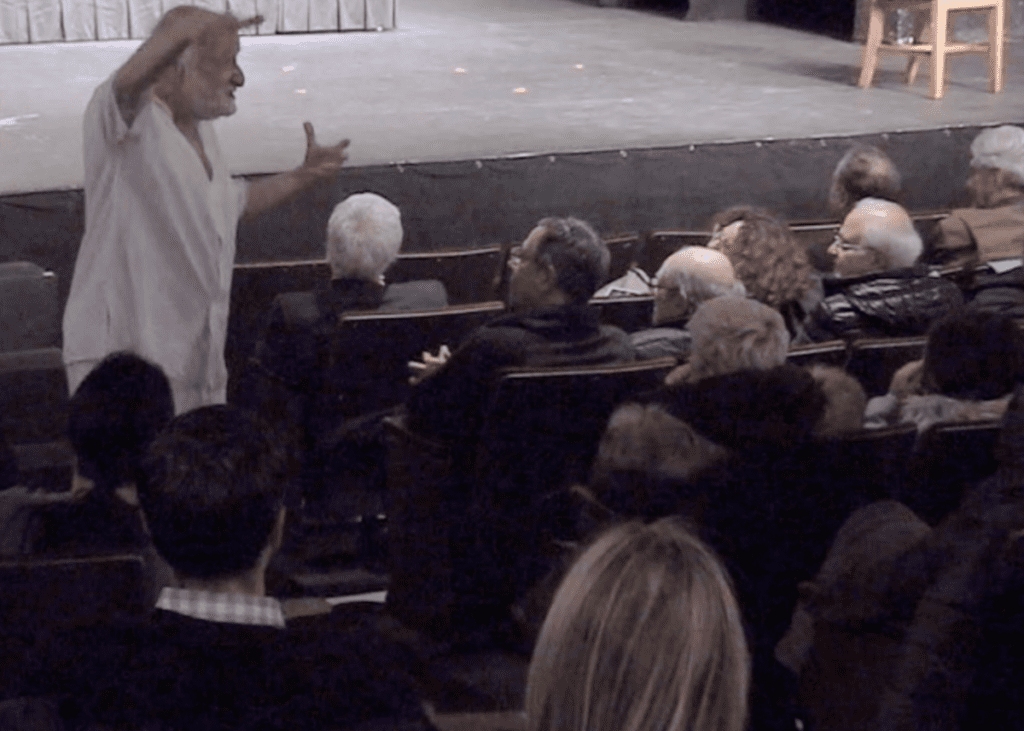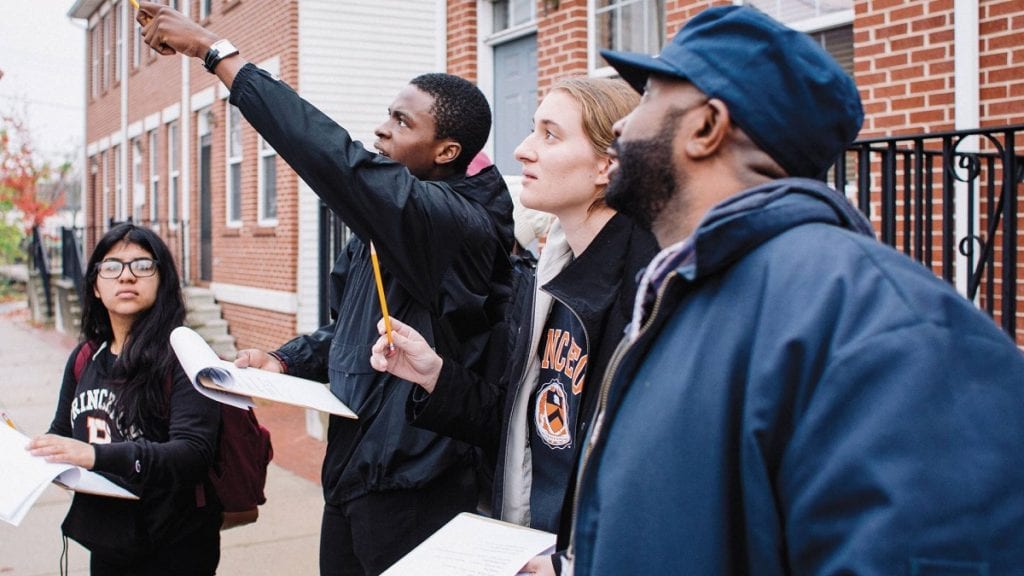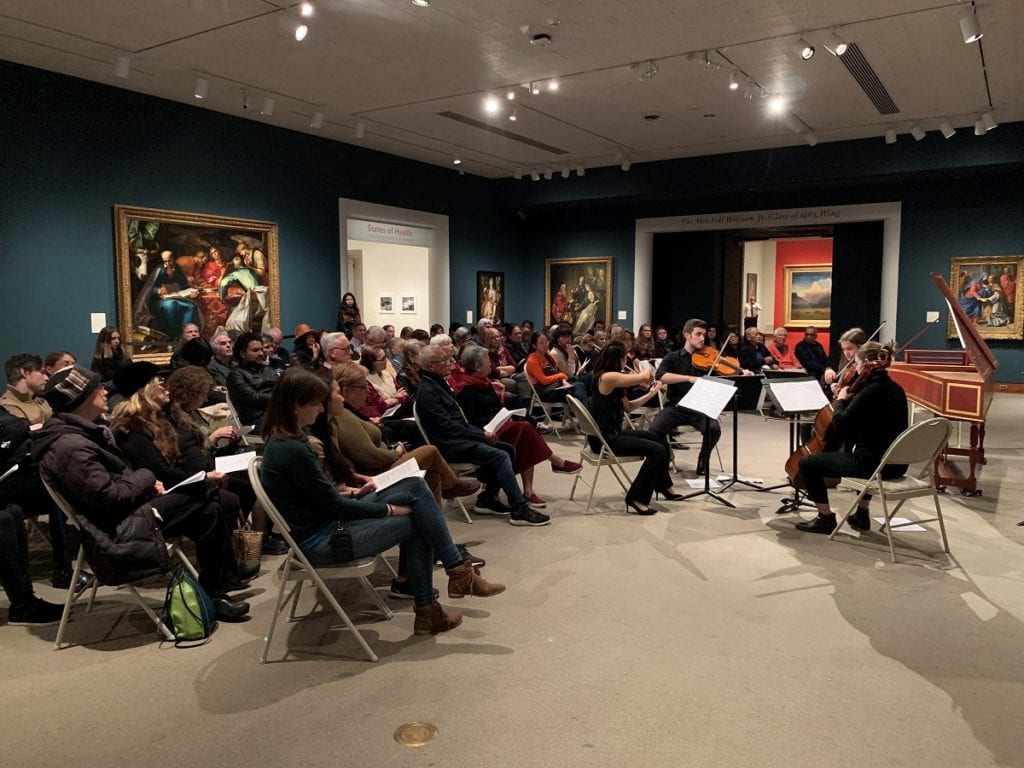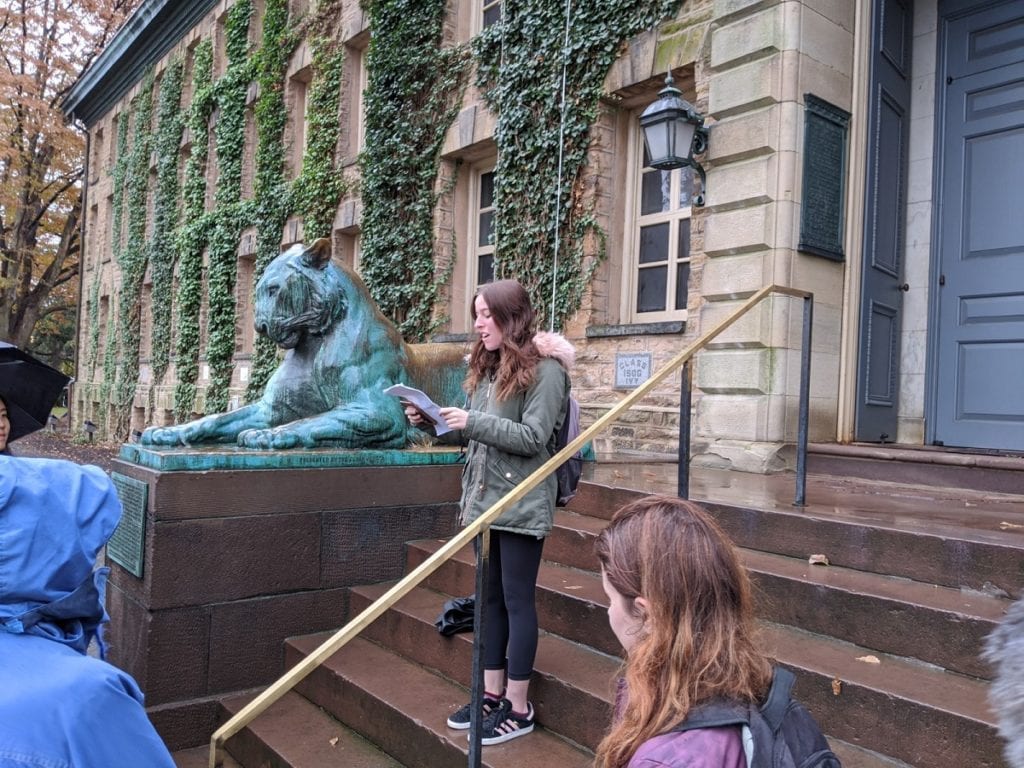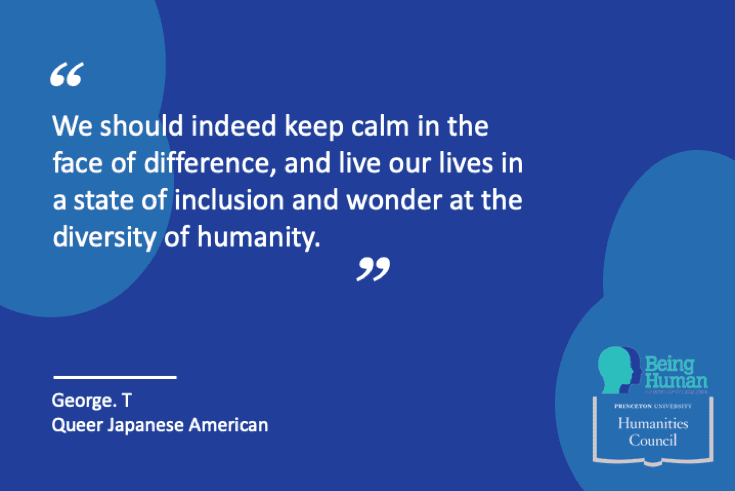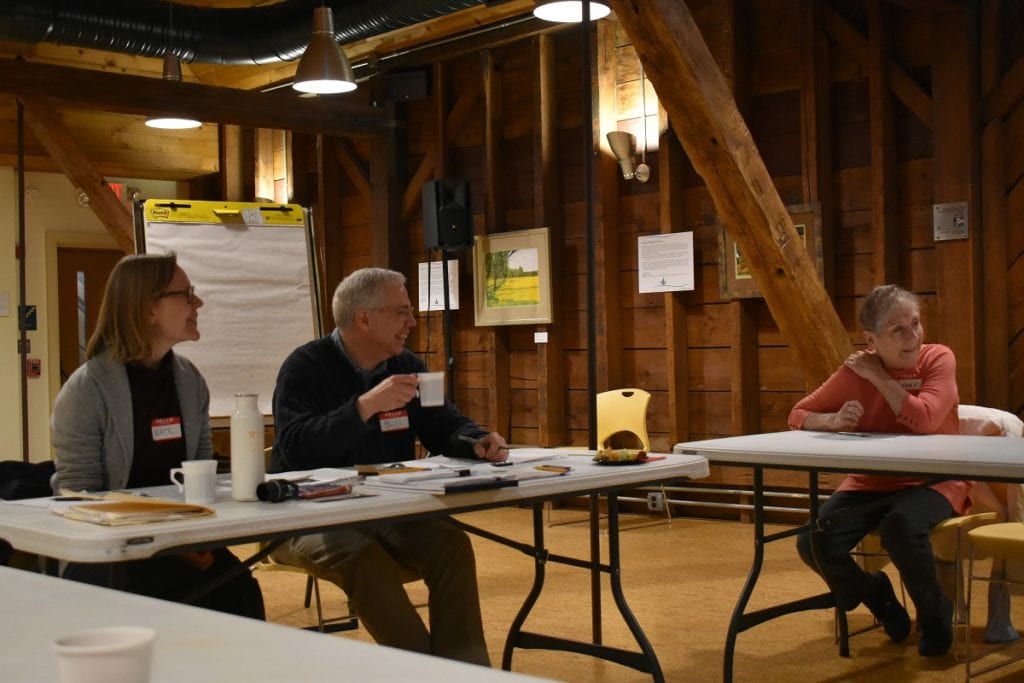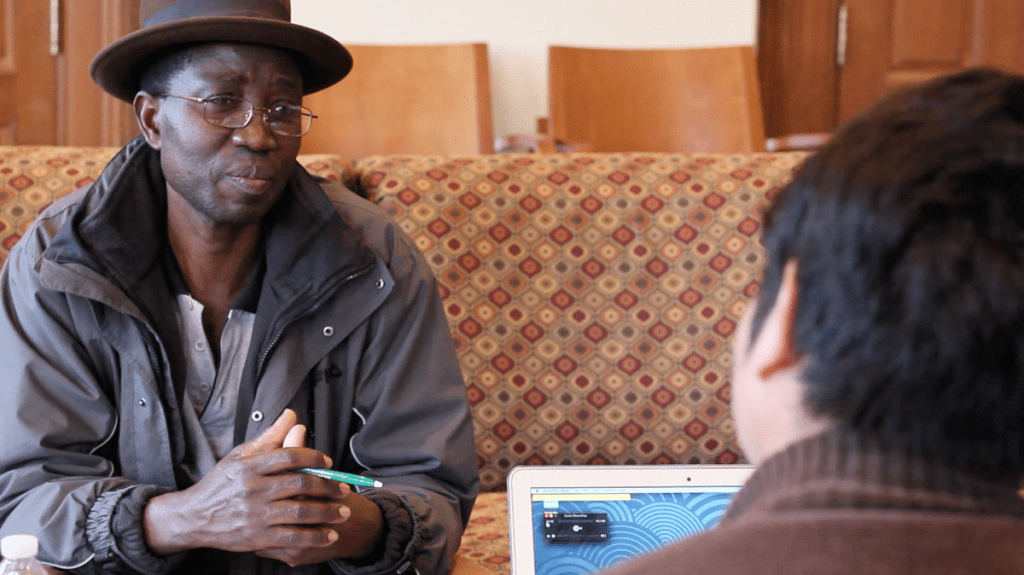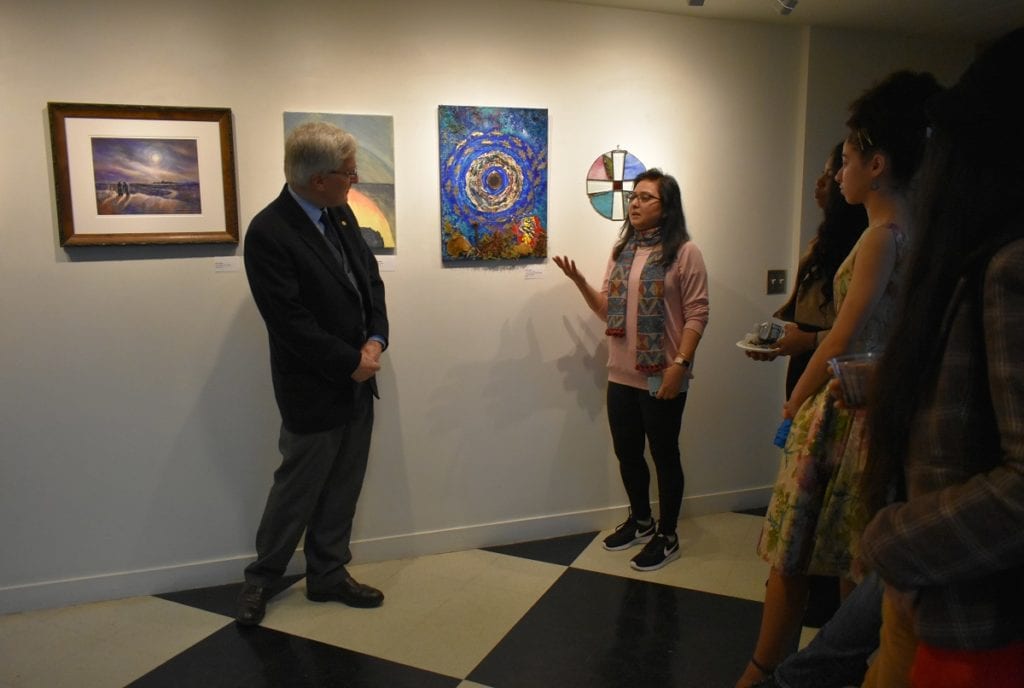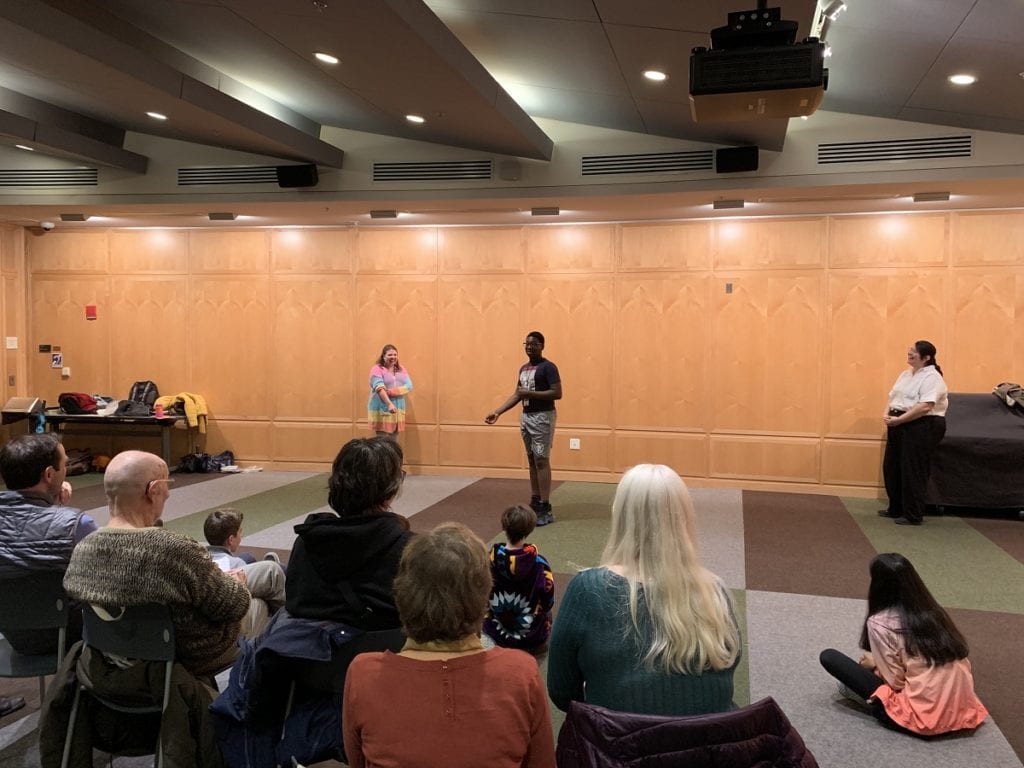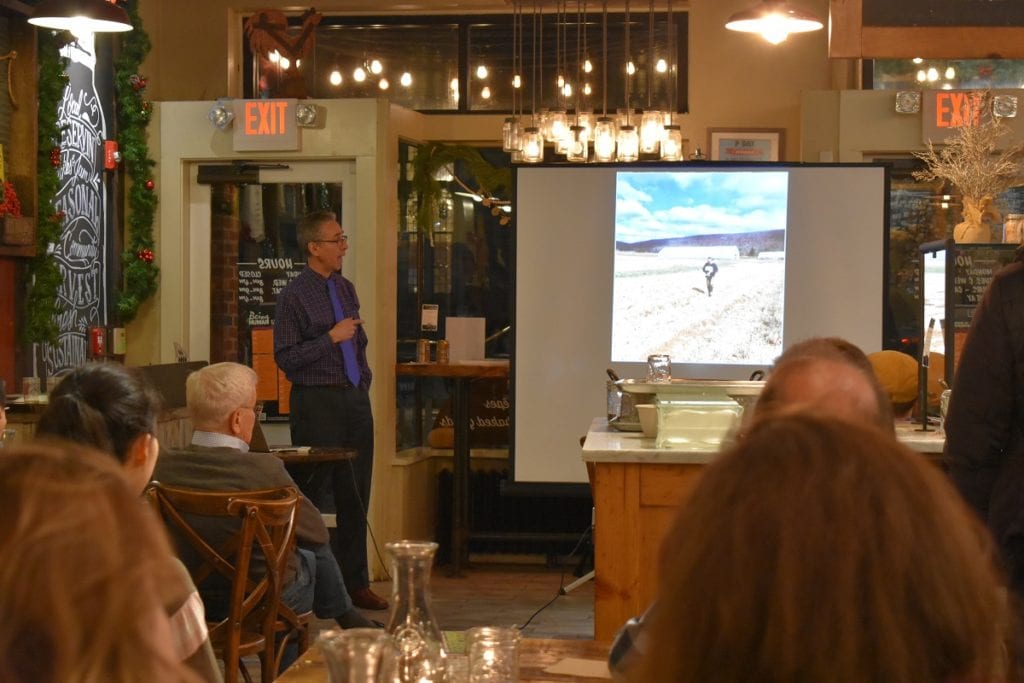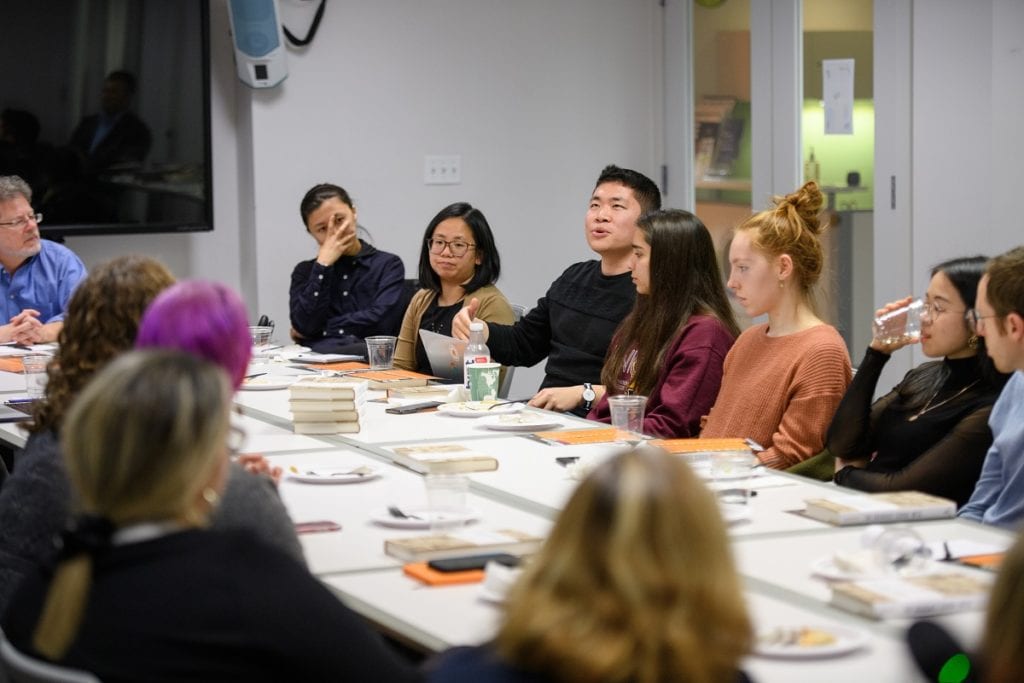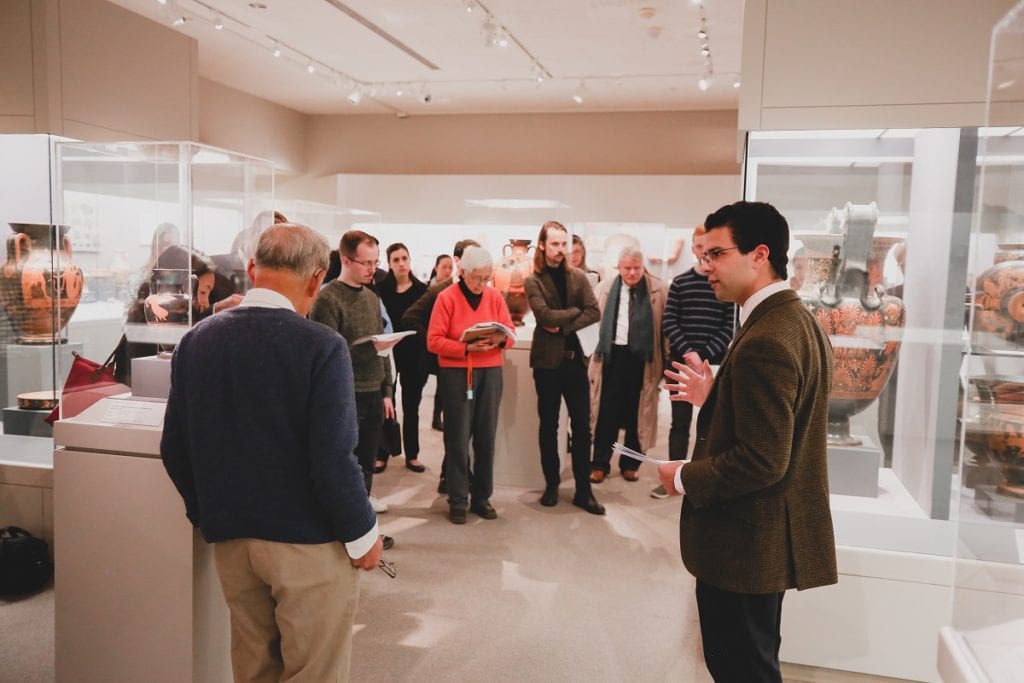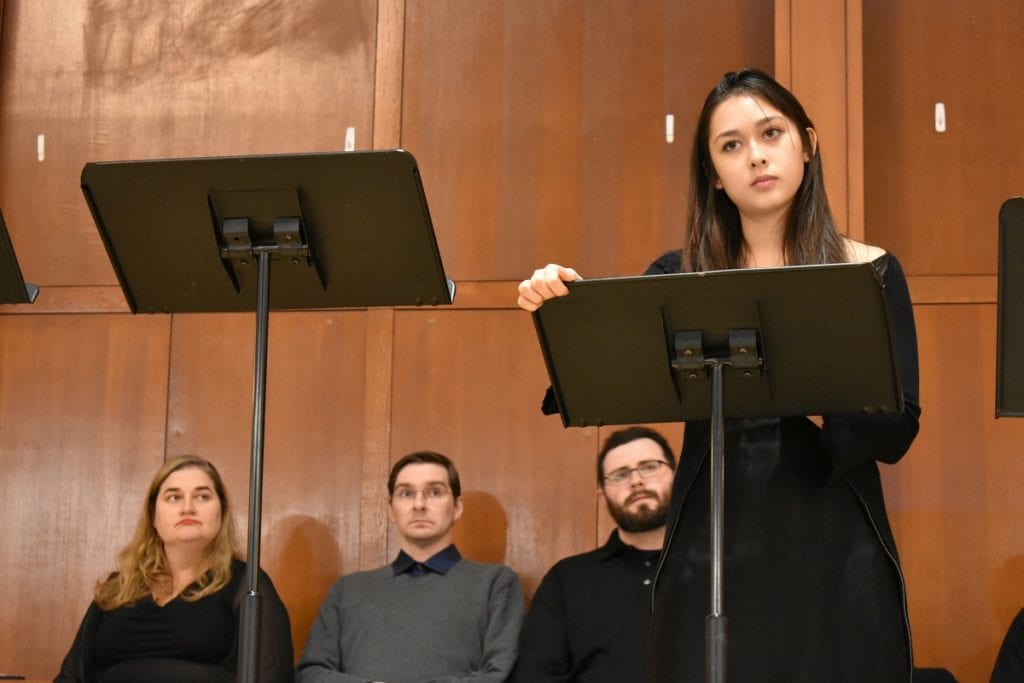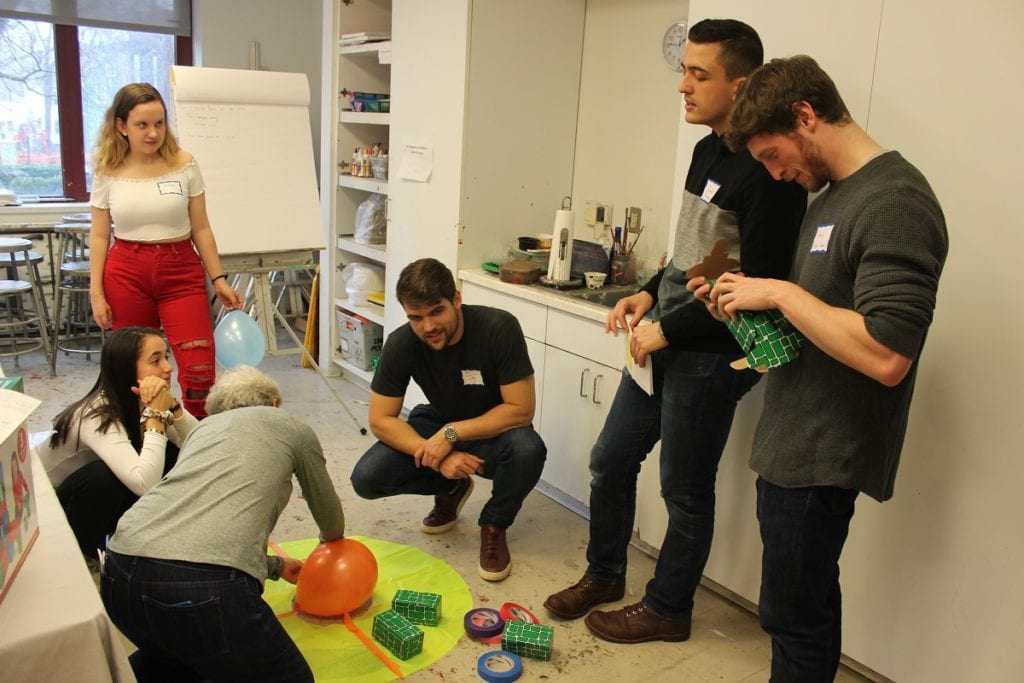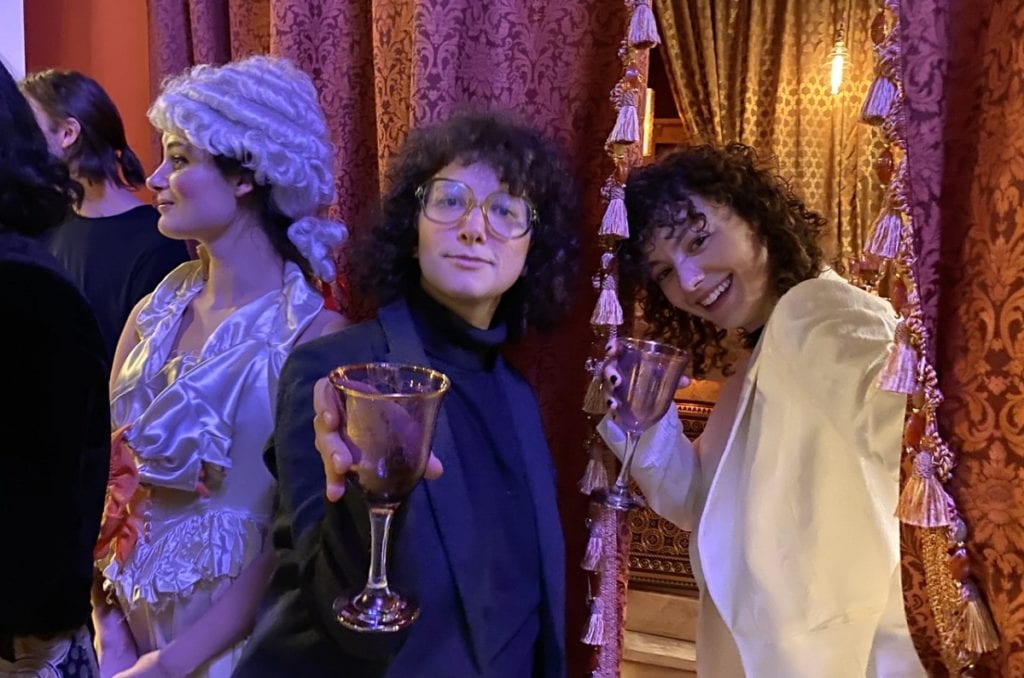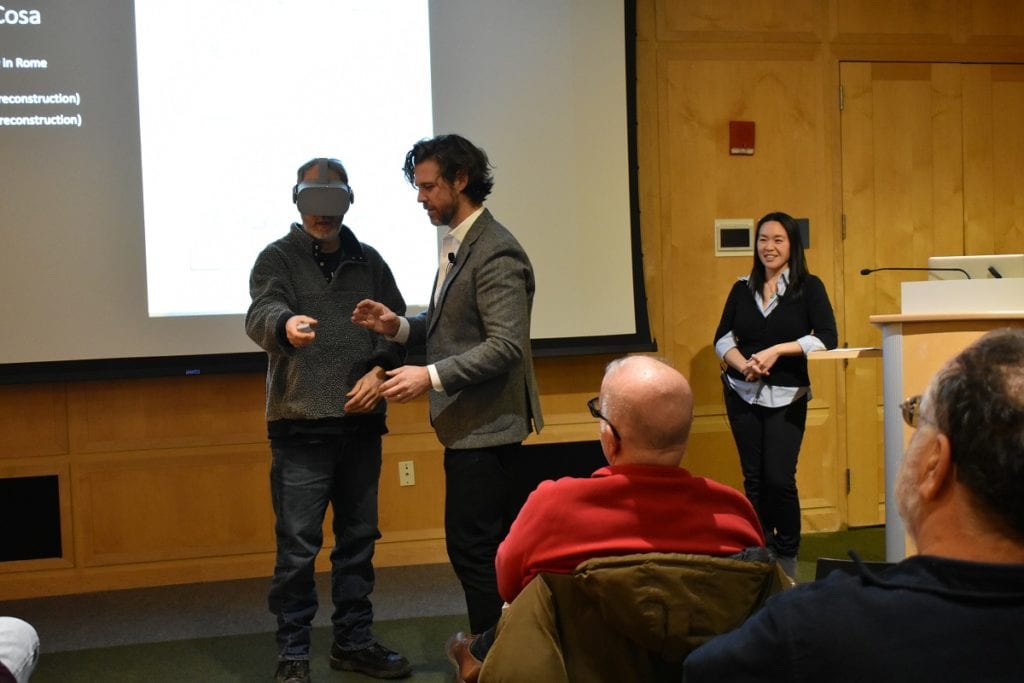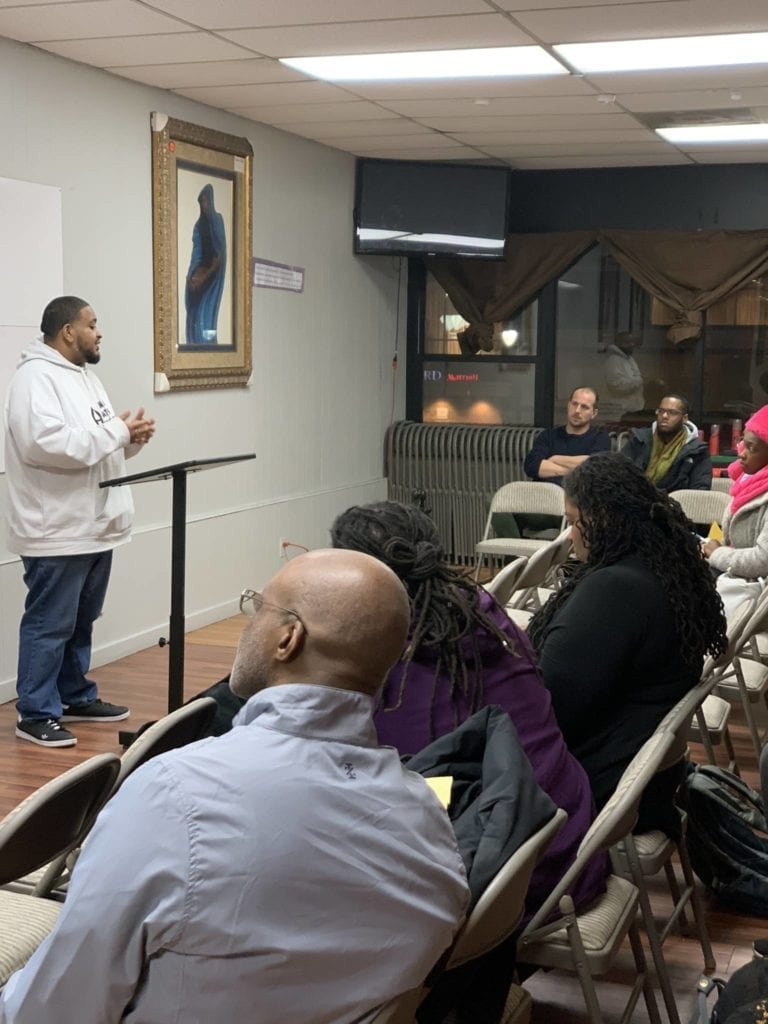By Ruby Shao ’17, Humanities Council Project Coordinator
The shared quest for knowledge bloomed into nascent friendships along with new ideas among over 1,000 diverse people, in and out of the academy, through Princeton University’s Being Human Festival 2019. Being Human enlivens the humanities for non-academic audiences. Based in the U.K., this international initiative has only one U.S. hub, coordinated at Princeton University by the Humanities Council in partnership with the Program for Community-Engaged Scholarship.
Princeton University’s festival launched in October 2019 during National Arts and Humanities Month, the largest annual celebration of the arts and humanities in the U.S. Lasting into January 2020, 23 free events swept across New Jersey. Each sprung from a town-gown collaboration between at least one Princeton University researcher—drawn from faculty, staff, or students—and at least one community member unaffiliated with Princeton University. Attendees included not only locals but also visitors from across the Northeast.
The semester of festivities revolved around the 2019 international theme of “Discoveries and Secrets,” which delved into untold stories, hidden histories, and mysteries. Offerings more than tripled in number, while exploding in range and reach, compared to those of Princeton University’s 2018 pilot run.
In 2019, Being Human opened with a call for local artists using any medium to capture “The Spirit of Truth-Seeking,” an October 11 public conversation introduced by Princeton University President Christopher L. Eisgruber ’83. Eisgruber said that he heartily endorsed a declaration published by the evening’s speakers, Princeton University Professor Robert P. George and Harvard University Professor Cornel West *80: “The pursuit of knowledge and the maintenance of a free and democratic society require the cultivation and practice of the virtues of intellectual humility, openness of mind, and, above all, love of truth.”
Relive the diversity of the festival from beginning to end:

“The Spirit of Truth-Seeking I,” Oct. 11, McCosh Hall 50: Being Human commissioned local artists to depict a conversation between Princeton University Professor Robert P. George and Harvard University Professor Cornel West *80 about the mission of higher education. Introducing the event to an audience of about 400, Princeton University President Christopher L. Eisgruber ’83 said that research universities must “seek truth about questions that matter even when, perhaps especially when, investigating them may threaten conventional wisdom or societal pieties.” Watch the video: https://jmp.princeton.edu/events/spirit-truth-seeking#video Photo: Fotobuddy

“Belonging(s) in Movement,” Oct. 11 – 14, East Pyne Hall: A performance and workshops producing artisanal magazines called “zines” explored migration with the help of indigenous artists, scholars, and activists from Saskatoon, Saskatchewan. The audience included University members along with Princeton or Hamilton residents recruited through the Princeton YMCA’s English as a Second Language program. Read more: https://humanities.princeton.edu/2020/01/30/being-human-reflections-on-belongings-in-movement/ Photo: Ruby Shao

“The Powers of African Spirituality in Global Consciousness: Light, Vision, & Truth,” Oct. 18, Aaron Burr Hall 216: Traditional libations, ritual songs, ceremonial dances, art, literature, and short films accompanied expert analyses of the revitalization of African spirituality in Africa and in the U.S. The gathering featured Akan path priests and priestesses from Ghana as well as the U.S., scholars of African traditional religions, and members of the public.

“Princeton’s Civil War”; Nov. 2; Nassau Hall, to University Chapel, to Firestone Library: Top Civil War historian Dr. Allen C. Guelzo, Senior Research Scholar in the Humanities Council, led a lecture and tour that used Princeton University’s experience in the Civil War to show how the troubles of the era divided Princetonians as well as the nation. Read more: https://humanities.princeton.edu/2019/11/13/princetons-civil-war-featured-by-firestone-library/ Photo: Ruby Shao

“Discovering Gandhi in Prison,” Nov. 7 – Dec. 19, Garden State Youth Correctional Facility: Led by Princeton University lecturer Dr. Mark Edwards, residents aged 17 – 29 met over six sessions to study the works of Mohandas K. Gandhi, such as his autobiography “The Story of My Experiments with Truth.” Read more: https://humanities.princeton.edu/2020/01/29/being-human-creating-an-ashram-in-a-youth-correctional-facility/ Photo: Nick Donnoli

“Formations of Belief: Historical Approaches to Religion and the Secular,” Nov. 13, Labyrinth Books: Princeton-based writer and therapist Libby Zinman Schwartz interviewed Princeton University Professor Philip Nord on the new book he co-edited about how spirituality has changed due to the decline of secularism. Photo: Ruby Shao

“Socrates NOW,” Nov. 13, Murray Theater: Voicing ethical dilemmas as Socrates under trial, Emmy Award winner Yannis Simonides brought his successful interactive play to Princeton, in a performance organized by the Stanley J. Seeger ’52 Center for Hellenic Studies as part of a series celebrating Princeton Hellenic Studies at 40. The Andrés Mata Foundation supported the presentation.

“Conversations on Identity and Difference,” Nov. 15 – Dec. 13, Lawrence Community Center: Executive Director of People & Stories Cheyenne Wolf, Princeton University Professor Christina Lee, Program Coordinator Kira O’Brien of the Pace Center for Civic Engagement, and Princeton University undergraduate Toyosi Oluwole oversaw four sessions of students and community members reading a story aloud, then tying it to their own lives.

“States of Health: Visualizing Illness and Healing,” Nov. 21, Princeton University Art Museum: In the first of three Being Human events connected with the exhibit of the same name, Dr. Kevin Liou, who specializes in using museums and art to teach medicine, led a gallery workshop for people working in fields ranging from biology to English. Next, the Princeton Chamber Music Society played the concert “Being Sound: Music, Madness, and Medicine” inside the Museum for a packed audience of over 100. Finally, Princeton University molecular biology graduate student Robert LeDesma gave an intimate tour of the exhibit, for which he served as research assistant, to medical professionals from the Princeton Medical Center. Photo: Cara Bramson

“Words and Places: A Literary Tour and Walking Workshop”; Nov. 22; Nassau Hall, to Holder Hall, to Blair Arch, to McCosh Hall, to 1879 Arch, to Firestone Library: Princeton Writes, the Historical Society of Princeton, and the Princeton Nassoons partnered for the first ever tour of literature about Princeton by authors who wrote about, visited, or taught at the University. Read more: https://humanities.princeton.edu/2019/12/05/words-and-places-a-literary-tour-and-walking-workshop-featured-by-princeton-writes/

“Queer Letters: Writing Stories About Identities, Families, Gender, Cultures, and Communities,” Dec. 3, Princeton Public Library: Participants recounted personal stories about their families, creating pieces of artwork and writing to take with them. Read more: https://humanities.princeton.edu/2019/12/09/being-human-queer-letters-writing-stories-about-identities-families-gender-cultures-and-communities/

“Literature and Environment: A Reading and Creative Writing Colloquium,” Dec. 7, D&R Greenway Land Trust: After teaching community members to analyze a poem about nature, Princeton University Professor William Gleason and PhD candidate Kate Thorpe took participants outside to read poems and observe the landscape along the Scott and Hella McVay Poetry Trail, before returning inside to compose their own poems. Photo: Ruby Shao

“Refugee Oral History Convention,” Dec. 7, Murray-Dodge Hall: Local refugees representing ten countries received oral history training, shared lunch with Princeton University students, and collected oral histories of one another with a focus on religion. Read more: https://humanities.princeton.edu/2020/01/27/being-human-religion-shapes-dialogue-at-refugee-oral-history-convention/ Photo: Andie Ayala

“The Spirit of Truth-Seeking II,” Dec. 7 – 14, Arts Council of Princeton: The exhibit of works created for an earlier Being Human event, “The Spirit of Truth-Seeking I,” culminated in a closing reception where Princeton University Professor Robert George interpreted the pieces in dialogue with several of the artists. Read more: https://jmp.princeton.edu/gallery/spirit-truth-seeking-exhibit Photo: Ruby Shao

“Improv and Being Human,” Dec. 9, Princeton Public Library: The Princeton Graduate Improv Club teamed with improv instructors from New York City to teach the art of improvisational comedy to community members. Read more: https://humanities.princeton.edu/2019/12/20/being-human-improv-and-being-human/ Photo: Tori Gorton

“Prescription Vegetable?,” Dec. 10, Jammin’ Crepes: Following presentations by local farmers during a plant-forward, place-based feast, Dr. Ron Weiss of Ethos Health argued that diets centered on fruits plus vegetables can always prevent, and almost always reverse, chronic diseases, which account for 86% of US medical care costs. Photo: Ruby Shao

“The Secret Lives of PhDs,” Dec. 12, Princeton Entrepreneurial Hub: James Van Wyck, Assistant Dean for Professional Development at the Princeton University Graduate School, convened doctoral candidates in the humanities and members of the public to explore PhDs not only within but also beyond the academy. A podcast, video, and other media will continue the conversation. Photo: Fotobuddy

“The Art of Being Human: St. Cecilia Through Poetry and Film,” Dec. 12, McCormick Hall 101 and Princeton University Art Museum: Princeton University alumnus Joe Perez-Benzo collaborated with fellow alumni, current undergraduates, and artists of varying mediums to host nearly seven hours exploring the patronness of music. Festivities included a poetry tour of the Museum that paired works of art with verses read aloud and explicated on the spot, as well as a concert by a singer and violinist duo of sisters in the Medieval Gallery. Watch the concert: https://www.youtube.com/watch?v=RYhryVUVlFI&feature=emb_title Photo: Sonya Isenberg

“Equivocation,” Dec. 12, McCosh Hall 50: The Aquinas Institute for Catholic Life at Princeton University and The Playwright’s Guild co-sponsored a reading of the play Equivocation, featuring actors from the two organizations plus New York City. Afterward, the audience engaged in a talkback about faith and politics with Princeton University postdoctoral fellow Flynn J. Cratty. Photo: Ruby Shao

“Redesign Your Workplace: Space and Creativity,” Dec. 14, Arts Council of Princeton: To teach community members how to make their working environments more conducive to creativity, Princeton University undergraduate Allison Huang equipped attendees to absorb relevant scientific findings, brainstorm ideas, and build items from raw materials. Photo: Ella Whitfield

“Serve It Forth,” Dec. 14, Mana Contemporary: Princeton University Professor D. Graham Burnett and Stevie Knauss of Mana Contemporary hosted a five-course “exhibition in the mouth,” in partnership with young artists who staged performances spanning music, dance, and multimedia, curated to heighten awareness of questions of “taste.”

“Illuminating Incarceration in Antiquity Through Digital Humanities,” Dec. 18, Princeton Public Library: Princeton University Lecturer Matthew Larsen and Assistant Professor Caroline Cheung showed audience members how to explore the insides of ancient prisons through virtual reality goggles. Photo: Ruby Shao

“The Thicker Than Water Open Mic,” Jan. 9, Source of Knowledge Bookstore: Following a discussion of the implications of the Newark Water Crisis, the DC Youth Slam Team performed a piece, inspiring original poetry and performances from attendees. Guests learned about resources like water filters and testers from the Newark Water Coalition, for which the event raised $250 through a 50/50 raffle. Photo: Malachi Byrd




